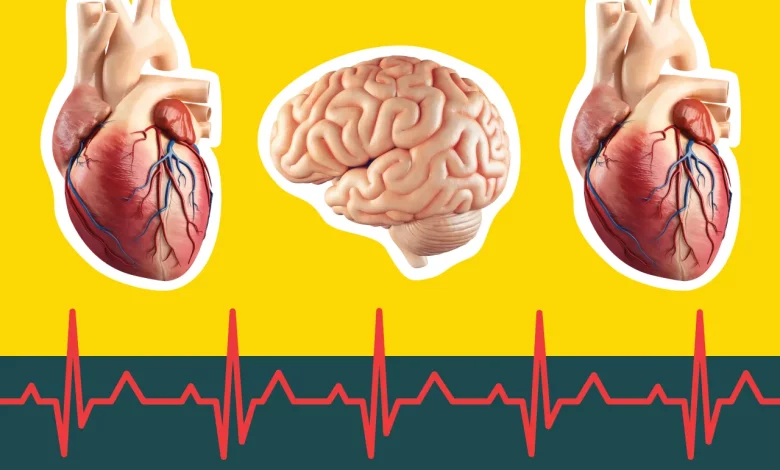Wegovy’s Dual Triumph: Obesity Drug Shown to Safeguard Against Heart Attacks and Strokes

Wegovy, a groundbreaking obesity treatment developed by Novo Nordisk, has recently garnered attention not only for its impressive weight loss benefits but also for its potential positive impact on heart health. Novo Nordisk recently disclosed the outcomes of an extensive clinical trial assessing the drug’s effectiveness in reducing the occurrence of heart attacks and strokes among individuals who are overweight or obese. The results indicate that Wegovy, which contains the active ingredient semaglutide, can significantly lower the risk of major cardiovascular events by 20% over a span of up to five years compared to a placebo.
Semaglutide, the synthetic version of the GLP-1 hormone found in the human body, constitutes the core component of Wegovy. The GLP-1 hormone serves a pivotal role in regulating metabolic processes, including insulin secretion. Notably, GLP-1 drugs have been employed for managing type 2 diabetes for more than a decade, with Novo Nordisk’s Ozempic being another notable medication that contains semaglutide. Besides their diabetes management properties, GLP-1 drugs are also known to consistently curb hunger and cravings, positioning them as promising contenders for combating obesity. In June 2021, Wegovy gained approval from the Food and Drug Administration (FDA) as a treatment for obesity.
The introduction of Wegovy and its subsequent approval has sparked enthusiasm among experts, who perceive it as a herald of a new era in obesity treatment. Clinical trials have revealed that individuals using Wegovy have managed to shed around 15% of their initial weight, a remarkable achievement surpassing the typical weight loss observed with previous obesity medications.
Despite the excitement surrounding these drugs, a pertinent query has lingered regarding whether their benefits extend beyond weight loss in individuals without diabetes. Since 2018, Novo Nordisk has been conducting the Semaglutide Effects on Heart Disease and Stroke in Patients with Overweight or Obesity (SELECT) trial, with the primary objective of addressing this question. The SELECT trial engaged more than 17,000 participants from 41 countries, enrolling overweight or obese individuals aged over 45 who had pre-existing cardiovascular disease but no history of diabetes. These participants were assigned to receive the highest dose of Wegovy (administered weekly via injection) or a placebo, in combination with standard medical care. Over a period of up to five years, the volunteers underwent rigorous monitoring for major cardiac issues, including cardiovascular-related fatalities, nonfatal heart attacks, and strokes.
Across the board, the results of the clinical trial revealed that individuals who were prescribed Wegovy exhibited a reduced likelihood of developing major adverse cardiovascular events when compared to those who were administered a placebo. The collective risk of experiencing such events decreased by an impressive 20% within the Wegovy group.
According to a statement released by the company, Martin Holst Lange, the Executive Vice President for Development at Novo Nordisk, stated that these findings have great significance in addressing the health concerns of individuals living with obesity. He emphasized that while obesity is associated with an elevated risk of cardiovascular disease, no prior weight management medications have been definitively proven to not only manage weight effectively but also mitigate the risks of heart attacks, strokes, and cardiovascular-related deaths. Lange expressed his excitement over the landmark nature of the SELECT trial, underscoring its potential to revolutionize the perception and treatment of obesity.
While the findings from the trial are certainly promising, it’s important to note that they have yet to undergo external scrutiny by independent scientists, an essential step in the scientific validation process. The company has communicated its intention to present the full results at an upcoming scientific conference later this year. Additionally, Novo Nordisk plans to pursue regulatory approval for expanding Wegovy’s label to officially recognize its heart health benefits.
The implications of these findings are likely to extend beyond Wegovy itself. There is a pipeline of other similar drugs under development, some of which exhibit even greater average weight loss effects. Therefore, these drugs could potentially prove beneficial in addressing cardiovascular disease as well. Moreover, the broader implications underscore the potential health benefits associated with weight loss, which have been suggested by numerous studies but historically remained challenging to directly establish due to the difficulty of achieving sustained and significant weight loss outside of surgical interventions.
However, concerns regarding the future application of these drugs persist. GLP-1s, including semaglutide, are known to trigger certain undesirable side effects, notably nausea, vomiting, and other gastrointestinal symptoms. While these side effects are generally mild to moderate and tend to abate over time, limited evidence suggests that GLP-1s could carry a rare but serious risk of complications, particularly with prolonged use. Despite these concerns, the current safety profile of these drugs seems to strike a balance against their potential risks, at least for those individuals who are approved to use them. Further research and monitoring will likely be critical in fully understanding the long-term effects and risks associated with these medications.





